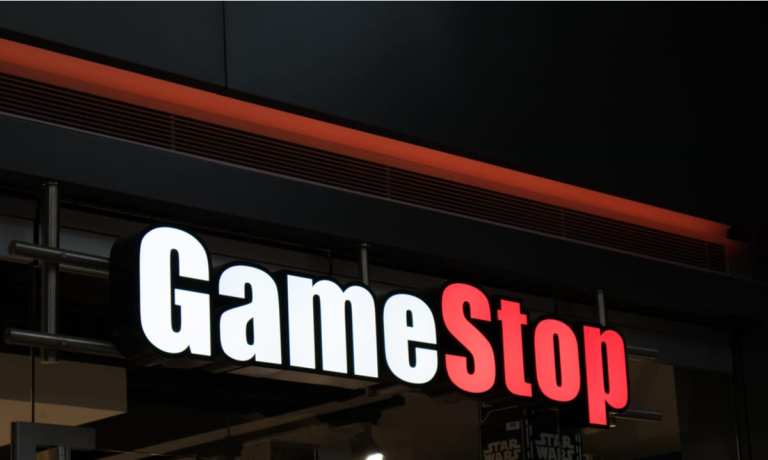GameStop Digital Sales Spike For Q4; Moves To Be ‘Customer-Obsessed Tech Company’

The digital transformation of GameStop that has captivated investors for the past three months continued Tuesday (March 23), as the video game retailer announced a 175 percent increase in its global eCommerce sales, which accounted for one-third of its total revenue, or nearly triple the share of online revenues it delivered a year ago.
The declining reliance on brick-and-mortar stores comes as the company strives to reinvent itself amidst a chorus of cheers and jeers from the skeptics and believers who have a deeply vested interest in proving their point. All the while, the company — which is now worth more than $13 billion — is trying to keep its head down, ignore the distraction and emerge on the other side as something new and better.
“We are focused on transforming into a customer-obsessed technology company that delights gamers,” CEO George Sherman said on the company’s earnings call, which attracted an over-capacity crowd and had to be closed down.
For the three months ending Jan. 30, the Texas-based specialty retailer said its total sales were down 3 percent to $2.1 billion as it closed 232 stores in Q4 — and almost 700 for the full year — leaving it with 13 percent fewer stores or roughly 4,800 total locations. However, on a same-store sales basis, GameStop said Q4 revenues were up 6.5 percent but cautioned investors that due to widespread store closures, that key performance metric was no longer a good indication of performance.
“As a result of prolonged pandemic related store closures which began in March 2020, which will impact the calculation of comparable store sales this year, the Company does not currently intend to report this metric in fiscal 2021,” a company statement said. “[GameStop] believes total net sales is the more appropriate metric to evaluate the performance of the business at this time.”
More Management Changes
In the past two months, GameStop has revamped its board, brought in a new chief technology officer, transitioned to a new chief financial officer, and now also welcomed a new chief operating officer to the executive suite, in the form of former Google and Amazon operations leader Jenna Owens.
The influence of top shareholder Ryan Cohen continues to play out at GameStop as the billionaire co-founder and former CEO of online pet supply leader Chewy continues to push GameStop’s digital transformation from within via a new position created earlier this month.
There’s also new supply chain leadership and a former Chewy colleague brought in to guide eCommerce efforts.
Although the company has received more attention from the speculative activity surrounding its stock — including a volatile 10x spike in its share price this year — GameStop’s existing management has still had to run a global business with 50,000 employees while contending with trading investigations by securities regulators and Congress.
“As we look ahead, we are excited by the opportunities that are in front of us as we begin prioritizing long-term digital and eCommerce initiatives while continuing to execute on our core business during this emerging console cycle,” Sherman said. “Our emphasis in 2021 will be on improving our e-commerce and customer experience, increasing our speed of delivery, providing superior customer service and expanding our catalog,” he added.
New Year Momentum
As far as the new year is concerned, Sherman said the company was off to a strong start and recent momentum was continuing into February with a 23 percent increase in same-store sales led by continued strength in hardware.
“Console demand remains more robust than we can meet with supply from console makers, and as a result, we continue to see sell-through rates for our console events in a matter of minutes,” Sherman said on the call, which uncharacteristically included no question-and-answer session.
That said, Sherman told analysts that GameStop was working to “create a differentiated customer experience” to win new customers, better engage with existing ones, and reactivate former ones via four key initiatives.
Those include investment in technology, building a superior customer experience (including establishing a U.S.-based customer care center), expanding its product offerings across PC gaming, computers, monitors, game tables, mobile gaming, and gaming TVs, and finally, modernizing its U.S. fulfillment operations to improve the speed of delivery and service.
Whether GameStop can successfully pull off this sweeping overhaul remains to be seen, but if nothing else, the company’s latest earnings results gave investors something tangible to fight over that had to do with the hot but evolving video game industry rather than the amplified opinions of vested investors.